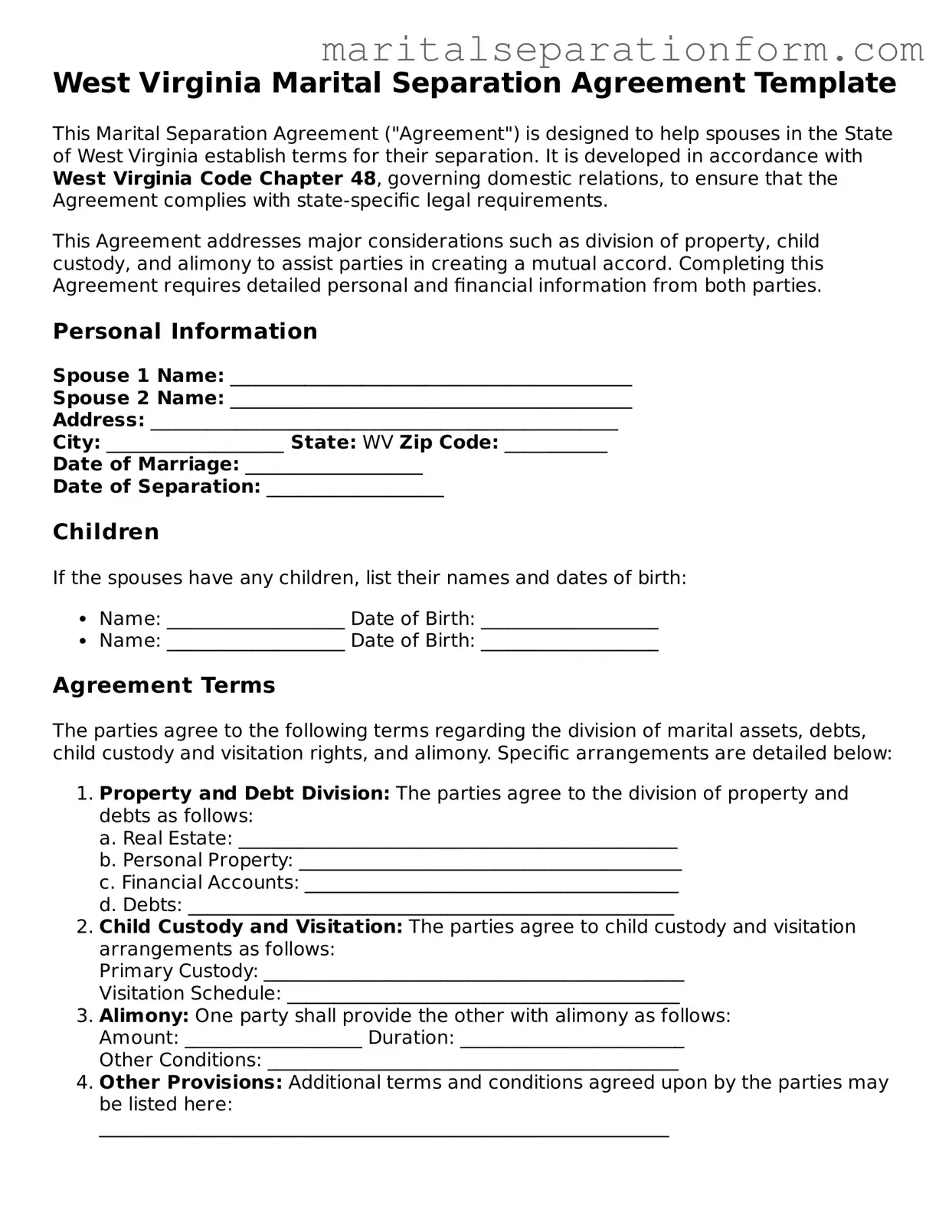West Virginia Marital Separation Agreement Template
This Marital Separation Agreement ("Agreement") is designed to help spouses in the State of West Virginia establish terms for their separation. It is developed in accordance with West Virginia Code Chapter 48, governing domestic relations, to ensure that the Agreement complies with state-specific legal requirements.
This Agreement addresses major considerations such as division of property, child custody, and alimony to assist parties in creating a mutual accord. Completing this Agreement requires detailed personal and financial information from both parties.
Personal Information
Spouse 1 Name: ___________________________________________
Spouse 2 Name: ___________________________________________
Address: __________________________________________________
City: ___________________ State: WV Zip Code: ___________
Date of Marriage: ___________________
Date of Separation: ___________________
Children
If the spouses have any children, list their names and dates of birth:
- Name: ___________________ Date of Birth: ___________________
- Name: ___________________ Date of Birth: ___________________
Agreement Terms
The parties agree to the following terms regarding the division of marital assets, debts, child custody and visitation rights, and alimony. Specific arrangements are detailed below:
- Property and Debt Division: The parties agree to the division of property and debts as follows:
a. Real Estate: _______________________________________________
b. Personal Property: _________________________________________
c. Financial Accounts: ________________________________________
d. Debts: ____________________________________________________
- Child Custody and Visitation: The parties agree to child custody and visitation arrangements as follows:
Primary Custody: _____________________________________________
Visitation Schedule: __________________________________________
- Alimony: One party shall provide the other with alimony as follows:
Amount: ___________________ Duration: ________________________
Other Conditions: ____________________________________________
- Other Provisions: Additional terms and conditions agreed upon by the parties may be listed here:
_____________________________________________________________
This Agreement serves as a guideline for the separation process and should be reviewed by an attorney to ensure it meets the legal requirements and interests of both parties involved. By signing this document, both parties agree to the terms outlined herein, which will be in effect until a formal divorce decree is issued by a court with competent jurisdiction.
Signatures
Spouse 1 Signature: ___________________________________ Date: ___________
Spouse 2 Signature: ___________________________________ Date: ___________
This document, once signed by both parties, will solidify the separation agreement but should be considered part of a larger process toward finalizing the divorce. It is imperative to consult legal counsel to navigate the complexities of this process and ensure compliance with all West Virginia laws.

